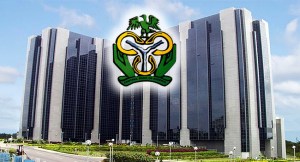The Central Bank of Nigeria has issued a strong warning to licensed Bureau De Change (BDC) operators nationwide, vowing to impose severe sanctions on those who fail to comply with anti-money laundering and terrorism financing regulations.
The directive comes in the aftermath of the CBEX financial debacle, in which thousands of unsuspecting Nigerians were lured into fraudulent foreign exchange transactions, costing them millions of naira. The case has cast a spotlight on long-standing regulatory gaps and the vulnerability of many Nigerians seeking alternative forex platforms amid economic uncertainty and a volatile naira.
In a circular dated April 17, 2025, and signed by Amonia Opusunju for the Director of the Compliance Department, the apex bank announced the immediate commencement of “mystery shopping.”
This is a strategy that involves deploying undercover compliance testers to assess real-time adherence to regulatory guidelines by BDCs.
“This initiative will complement existing supervisory activities, including routine and targeted examinations, as well as spot checks,” the CBN noted.
“Mystery shopping will involve the deployment of anonymous compliance testers to assess the practical implementation of Anti-Money Laundering/Combating the Financing of Terrorism and Counter Proliferation Financing obligations.”
These obligations, the CBN stated, include stringent Know-Your-Customer (KYC) checks, identification procedures, and timely reporting of suspicious transactions, factors often overlooked by operators eager to bypass scrutiny.
READ ALSO: EFCC responds to N1.3tn CBEX scam, reinforces warnings against Ponzi schemes
The bank underscored that compliance with the Money Laundering (Prevention and Prohibition) Act, 2022, the Terrorism (Prevention and Prohibition) Act, 2022, and the Regulatory and Supervisory Guidelines for Bureau De Change Operators, 2024, is non-negotiable. Operators falling short may face monetary penalties, license revocation, or criminal prosecution.
“For the avoidance of doubt,” the CBN stated, “full responsibility for compliance rests with each licensed BDC.”
For many Nigerians, the CBEX fallout is more than just a cautionary tale, it’s a personal tragedy.
This situation stresses the urgency of the CBN’s renewed scrutiny, especially in a digital economy where scammers frequently mimic authentic BDCs, exploit weak oversight, and prey on the desperation of citizens seeking financial stability.
With Nigeria’s FX crisis showing no signs of abating and demand for foreign currency outpacing supply, the informal forex market has expanded rapidly. BDCs, originally designed to serve small-scale forex needs, now sit at the center of a complex, loosely regulated ecosystem that has become a fertile ground for fraud, illicit transactions, and currency speculation.
However, without consistent enforcement and meaningful reform, the risks to everyday Nigerians will persist. The CBN’s move to launch mystery shopping might be a step in the right direction but caution has to be exercised as spot checks alone won’t fix a broken system.
To truly protect the public, the CBN must invest in training, transparency, and real-time reporting tools and most importantly, rebuild public trust.
As the country continues to recover from the ripple effects of CBEX and other forex-related scams, citizens are being urged to exercise caution, verify platforms, and deal only with licensed, transparent BDC operators.
The post CBN rolls out undercover audits to sanitize BDCs, FX market after CBEX scandal rocks Nigerians appeared first on Latest Nigeria News | Top Stories from Ripples Nigeria.







